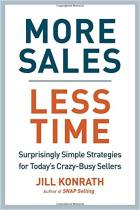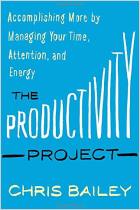“Everything you know about time management is wrong,” says consultant Rory Vaden in this “prequel” to his bestseller, Take the Stairs. People who are successful time “Multipliers” think differently about time management. Most people try to spend their 168 hours per week efficiently, but can only juggle so much so fast. Multipliers invest in themselves. They create systems to handle chores today so they gain free time tomorrow. They eliminate what doesn’t need to be done. They automate processes to save time. They delegate professional and personal tasks. Multipliers “procrastinate on purpose” by waiting until the last minute to do certain tasks because they understand that those jobs’ requirements constantly change. They concentrate on what they must do. Vaden explains why these tactics matter and gives you a menu of tactics to consider. getAbstract recommends his approach to anyone who’s too busy to get anything done.
Avoiding “Priority Dilution”
The “average executive gets 116 emails every single working day.” Also daily, that same person handles multiple calls, meetings and social media updates – distractions that can eat three hours of the day before the manager accomplishes any real work.
Many businesspeople fall prey to such priority dilution and put off their most important tasks in order to do less urgent work. Despite working very hard, they fall behind. Successful time “Multipliers” think differently about how they use the hours in the day. They don’t claim to be “too busy,” they don’t avoid work to focus on leisure activities, and they don’t strive for perfect work-life balance or seek greater efficiency. Multipliers enjoy their work. Although, somewhere along the way, retirement became the ultimate goal for many people, multipliers see their work as part of their lives and find that it can be a source of pride and satisfaction.
Work-life balance is a popular catchphrase, but it has little application in real life. By definition, balance means the pull of “equal forces in opposite directions,” which implies that you should spend equal amounts of time on your...
Rory Vaden, co-founder of Southwestern Consulting, a training company, also wrote the bestseller, Take the Stairs: 7 Steps to Achieving True Success.













Comment on this summary